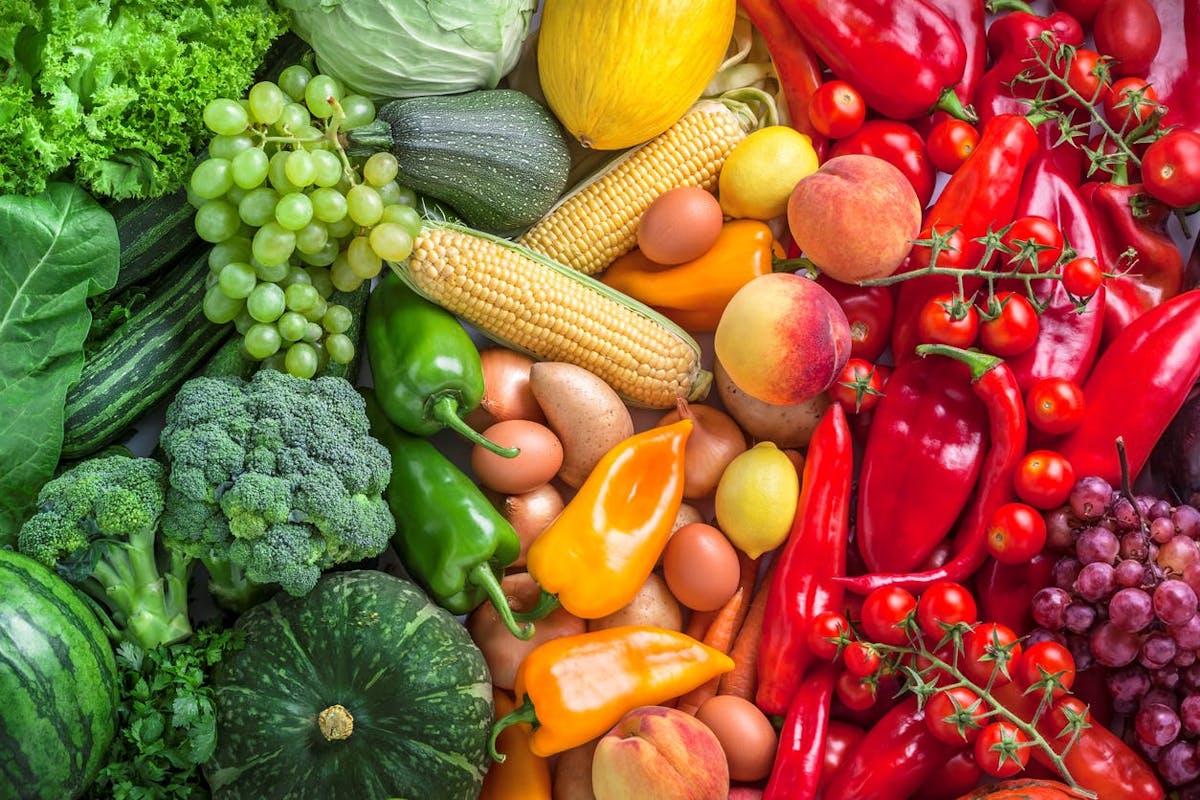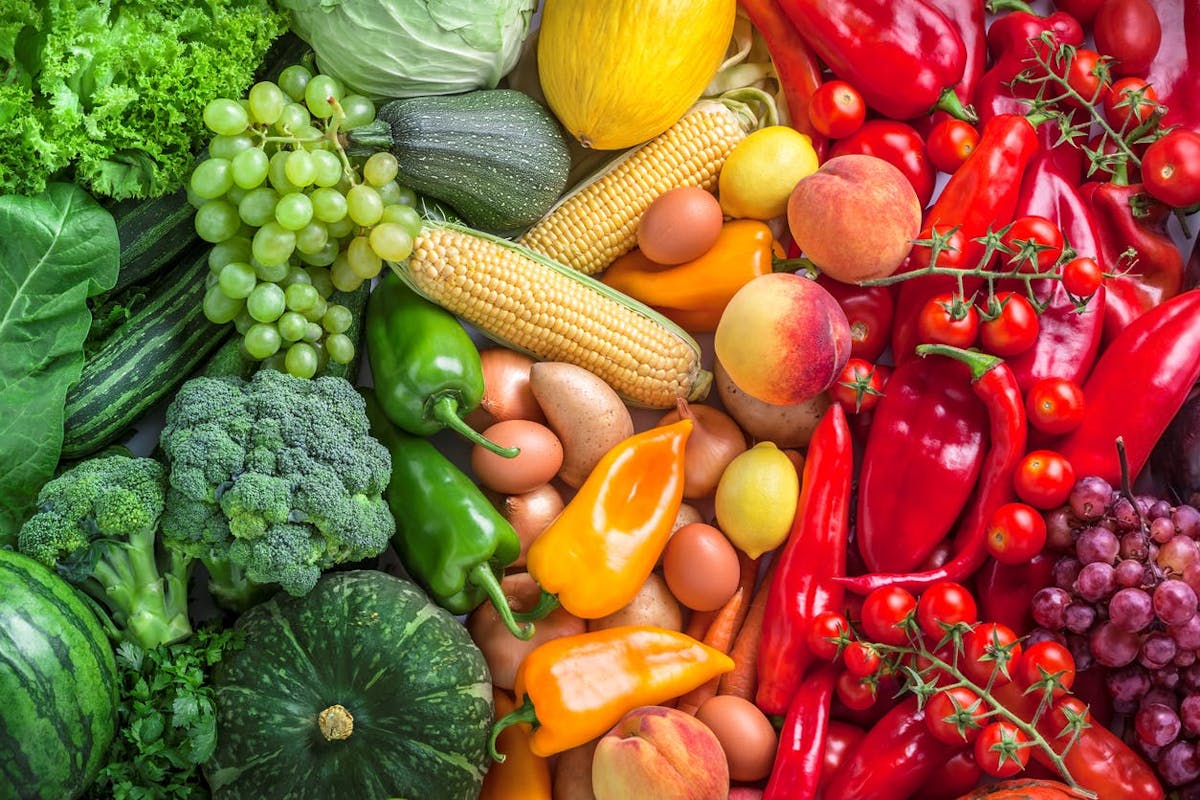Essential Nutrients for Your Brain

Essential Nutrients
For Your Brain
Essential Nutrients
For Your Brain

Nutrients are substances that provide nourishment for the growth and maintenance of life. An essential nutrient is any nutrient that the body cannot make on its own, so it must be obtained from food.
Essential brain nutrients include color pigments, Omega healthy fats, fibers, minerals, and vitamins.1-3 Essential brain nutrients support the body systems that feed and protect the nervous system. Most of us need to get more essential brain nutrients in our daily diet . Eating fruits, veggies, whole grains, legumes, and Omega 3 fats with healthful garnishings (herbs, spices, fermented foods, and pure sweeteners from nature) is a delicious and proven way to ensure you are getting enough essential nutrients.
COLOR PIGMENTS
Color pigments are organic compounds that give flowers, fruits, vegetables, and even butterflies their striking colors. The red inside tomatoes comes from lycopene. The yellow of egg yolk comes from lutein. The orange of squash comes from beta-carotene. Color pigments are good for your body and brain because they keep the circulatory system free of inflammation and they protect the synapses, which are your dynamic nerve endings.4-7 Color pigments have a unique chemical structure with double bonds that absorb extra energy. These double bonds are present in all antioxidants. Neutralizing extra energy with double bonds fights inflammation. Any natural, colorful food, beverage or garnishing is a good source of color pigment. Color pigments are present in, among other things, coffees, teas, chocolates, honeys, herbs, and spices.
OMEGA 3 & 6 HEALTHY FATS
Omega 3 and Omega 6 healthy fats are unsaturated fats. Fats form the backbone of all the cell membranes in our body and brain. The types of dietary fat we eat determine the types of fat incorporated into our cells. When our cell membranes are made of healthy fats, our cells, organs, and body function better.8,9 Unsaturated fats such as Omega 3 and Omega 6 are healthful because they have a special shape that makes them more flexible when they join with other fats in a membrane. Flexibility in our cell membranes makes our cells work better. The average American diet supplies enough Omega 6, but it does not supply enough Omega 3.10 You can get your Omegas by eating foods like fish, nuts, seeds, fatty fruits like avocado, and grass-fed dairy or meats. Walnuts are a significant source of Omega 3 and can tip the balance in your favor.
FIBER
Dietary fiber is the naturally-occurring carbohydrate component of plant foods. When we eat fiber, it enters our digestive system and is excreted without ever being absorbed into the blood. Because it does not get absorbed, it has no calories. In fact , you can burn more calories by eating fiber because it boosts your metabolism and also reduces calorie absorption. Getting more dietary fiber leads to improvements in digestive, circulatory, and metabolic health, which directly impacts brain health.11 Dietary fiber can be soluble (mixes with water) or insoluble (doesn’t mix with water). Both types of fiber are good for us. Dietary fiber slows down our digestion, which enables us to get more nutrients from our food. It also feeds the beneficial bacteria in our intestines. These bacteria not only help digest our food, but also secrete hormones that support the brain.12 Our bodies need a minimum of about 30g of fiber each day. On average, most of us get about 15g of dietary fiber each day. Any food that is a fruit, vegetable, legume, or whole grain is an excellent source of fiber.
MINERALS
Minerals are inorganic substances that carry an electrical charge. They are found in water, soil, plants, and humans. The charge of these minerals, and their concentration across cell membranes, determines the efficiency of all biological processes. The most important minerals for the brain are iron, magnesium, and potassium. Iron is critical for early brain development; it is the number one nutritional deficiency worldwide.13 Iron can be found in grass-fed meats as well as many plant foods such as spinach and kale. Magnesium is involved in every metabolic process.14 It can be found in greens, nuts, seeds, fish, soybeans, and dark chocolate. Potassium is an electrolyte that regulates body fluid levels. Eating foods high in potassium, like salmon, apricots, and pomegranates, supports a healthy systolic blood pressure of 120 or below.
VITAMINS
Vitamins B12 and B9 (folic acid), as well as Vitamin D, are essential vitamins for your body and brain. Vitamin B9 and B12 are water-soluble vitamins that help fight inflammation. They also form the precursors to our neurotransmitters (i.e., dopamine, neuroepinephrine and serotonin).15 Vitamin D is a fat-soluble vitamin that acts as a hormone. Vitamin D enters the nucleus of our cells and turns on genes involved in learning and growing.16 You can get Vitamin B9 (folate) from greens, citrus, and poultry. You can get Vitamin B12 from grass-fed meats, eggs, oatmeal, salmon, avocados, whole grains, and legumes. You can get Vitamin D through fatty fish, fortified tofu, and pumpkin seeds. Another good source of Vitamin D is sunlight – an easy and enjoyable way to stay healthy and happy.
How Do I Know I am Getting Enough?
Most of us aren’t getting enough essential nutrients in our daily diet . Your body and brain may be needing twice the color pigments, Omega 3s, fiber, minerals, and vitamins they currently get. A few simple blood tests can empower you with the knowledge of whether you have enough essential brain nutrients. You need a B12 level of at least 400 ng /L; you may need to supplement if you take antacids. Your homocysteine level, a marker of B12 metabolism and circulatory health, needs to be below 10 umol/L.17 You need a Vitamin D level of at least 30 ng /mL; you may need to supplement if you are not exposed to the sun every day or if you eat fish infrequently.18 You need to get your Omegas almost every day, and prioritize Omega 3.
AT HONEYBRAINS, YOU DON’T HAVE TO WORRY ABOUT WHETHER YOU ARE GETTING ENOUGH ESSENTIAL NUTRIENTS. THE FOOD AT HONEYBRAINS CONTAINS HIGH AMOUNTS OF ESSENTIAL NUTRIENTS OUR BODIES REQUIRE TO SUPPORT OUR BODY AND BRAIN. BY SIMPLY EATING THE HB FIVE FOOD GROUP - FRUITS, VEGETABLES, AND OMEGA 3S - WE CAN GIVE BACK TO OUR BODIES AND BRAINS.
Download this blog Here.

